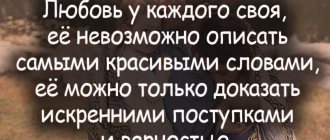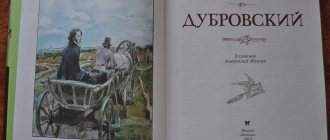- Essays
- On a free topic
/
Is generosity a strength of human character or a weakness? There are people who believe that showing kindness to another person is just a reverent attitude, but not a manifestation of true respect. But in reality this is absolutely not the case. Only a person with enormous fortitude is able to overcome the pain that was inflicted on him and forgive his offender.
There are many works in literature that touch on the themes of manifestation of such a quality as generosity. In Tolstoy’s work “War and Peace”, the hero Prince Andrei Bolkonsky becomes very disappointed in his beloved Natasha Rostova after he finds out that she has become interested in Anatole Kuragin. Before his death, Andrei Bolkonsky was still able to show generosity and overcome enormous pain in order to forgive his beloved.
In Gorky M.’s story “The Old Woman Izergil”, Danko’s feat can truly be called a magnanimous act, who, in order to save his people, was able to sacrifice his life, perfectly seeing their true essence. Danko is a person of incredible spiritual beauty; he was able to forgive the people around him for their shortcomings. The author contrasts the spiritual wealth and will of the hero with the lack of will and spiritual poverty of the crowd. It was too difficult for people to admit their powerlessness, so they succumbed to rage and anger and attacked Danko. The young man, despite the anger of the people, illuminated their path with the help of his heart, thereby saving the people from death. I believe that Danko’s feat only proves his majestic strength of soul.
In the story by Pushkin A.S. "The Captain's Daughter" hero Emelyan Pugachev acts according to his conscience, despite his reputation as a robber. The author conveys to the reader that even a negative character can be characterized by magnanimity, nobility and generosity.
I think that generosity is manifested in the ability to think not only about one’s own feelings, ambitions, views, but to put others’ interests above one’s own. This is expressed in condescension, compliance, and attentiveness towards other people.
In the novel by Dostoevsky F.M. “Crime and Punishment” is an example of the highest degree of generosity - Sonya Marmeladova. The girl Sonya is the daughter of a minor official who cannot provide for his family himself. Sonya is ready to sacrifice herself, her happiness for the sake of the happiness of her brother and sister, and also selflessly helps the needy and the weak.
Composition
What is generosity? For me, this is one of the very important character traits in a person. It manifests itself in the absence of selflessness, rancor, in the ability to understand and forgive, in the ability to self-sacrifice one’s interests. It is no coincidence that some writers discussed the presence of generosity in the human soul. That is why we can turn to works of art to reveal this concept.
Generosity can be an inner strength of a person, which illuminates both the people around him and the bearer himself. So, for example, we can recall the epic novel by L. N. Tolstoy “War and Peace”. The Rostov family collected all their belongings during Napoleon's siege of Moscow. In the same episode, wounded soldiers stopped in the yard. Natasha Rostova, who subtly felt the whole world, always treated both nature and the people with compassion and love, thought about the well-being of brave soldiers. That is why she was able to convince the countess with her fiery speech that their supplies would serve the good and make the lives of the heroes easier. It also meant leaving most of the property in the house, perhaps saying goodbye to luxury items forever, because French troops would likely be looting the houses. This fragment allowed us to see the girl’s generosity, which manifested itself in such traits as nobility and kindness.
However, the presence of generosity does not necessarily always mean that a person will be guided only by goodness and perform only heroic deeds. You can pay attention to the novel by A. S. Pushkin “The Captain's Daughter”. The narrator, as fate would have it, meets Emelyan Pugachev several times during the work, and this forces him to constantly change his mind and reflect on the real essence of the “villain.” The reader may recall the episode when the impostor gets to the Belogorsk fortress, where Pyotr Grinev serves. During the mass execution of the inhabitants, it is our hero's turn to either betray the oath given to the Empress, or face death. At this moment, a faithful servant comes to his aid, reminding Pugachev of the kindheartedness of Grinev, the sheepskin coat of a hare. That is why Emelyan Pugachev acts according to his conscience by releasing the narrator. And despite his reputation as a bloodthirsty and cruel killer, he helps the main character when, at the next meeting, he talks about his poor beloved in the Belogorsk fortress. So, the robber frees the captain’s daughter from Shvabrin, who is forcibly holding her. This act shows the reader the nobility and generosity of this person, so the hero feels sympathy for the fate of Emelyan.
Thus, after analyzing the above works, we can say that generosity is a character trait that manifests itself in sacrificing one’s interests for the sake of others, in kindness and compassion for people, as well as in a sense of justice.
Other topics: ← Conflict of generations ↑ On a free topic Why should a person be kind? →
`
Text for essay:
(1) Vitka rarely lied, but now, when the new Valya, whom he liked so much, looked at his opponent with respect, he frowned and began to think of something to say.
(2) But there was nothing “like that” in his life: he only remembered that a neighbor the other day told how moose came running to the Forestry Academy, and he blurted out in shock: “ Today two moose came running onto our street at night, they broke a window in a flower shop.” and they ate all the hydrangeas. (3) And I caught them and took them where they needed to be!..
(4) After a break in the class, Vitka was in for a surprise: a bow-legged elk, more like a dog, was drawn all over the board, and next to Vitka, a fat-bellied one, with a long nose, like Pinocchio’s. (5) He held the elk by the horns. (6) And the signature in verse:
Let the whole public know about this:
Our Vitka caught a moose on Sadovaya.
(7) He became terribly angry. (8) He erased the drawing and said defiantly:
- Laugh, laugh... (9) And you laugh too. (10) Why aren’t you laughing? – he turned to the new Valya.
(11) Valya again moved to the very edge of the bench and pulled her head into her shoulders...
(12) After lessons in the locker room, the guys mooed, asked how tall the elk was and other nonsense. (13) Vitka was silent and looked gloomier than a cloud. (14) He pushed everyone away, was the first to receive a coat and, without waiting for Konchak and Genka, went home. (15) He walked quickly, but Ninka Sekretareva and Valya caught up with him at the gate.
- (16) All the best... - Ninka snorted and rushed forward.
(17) Of course, she wanted to say “moose,” but she was afraid.
(18) Valya laughed and also wanted to sneak past Vitka, but he clenched his teeth and stuck his leg out in front of him. (19) Valya tripped and fell at full length onto the path.
“(20) Hooligan,” said Ninka, and when Valya stood up, she suddenly squealed and shouted:
- Hurry, guys! (21) Hurry!
(22) There was a wide abrasion on Valya’s forehead that was red. (23) The blood ran in a thin stream to the temple. (24) Valya leaned against the cast-iron gate and looked at Vitka pitifully, as on the first day, as if she wanted to say: “What have I done wrong to you?..”
(25) Pashka passed by Vitka.
- (26) Yeah, Moose, now they’ll kick you out of school.
(27) Ninka Sekretareva seemed to be waiting for this.
“(28) You’ve blossomed,” she squealed, “all you know is to wave your fists, hero!.. (29) Just wait, there will be a squad council!.. (30) The girls took Valya by the arms and took him to school to see the doctor...
(31) Vitka, without undressing, sat down at the table and rested his head on his fist. (32) He was so lost in daydreaming that he didn’t hear the bell in the corridor, didn’t hear the door open and Finish with Genka come in.
- (33) Vitka, where are you?..
(34) Vitka stared at the guests.
- (35) What do you want?
(36) Konchak sat down straight on the floor cross-legged, and Genka sat down on a chair near the door, took off his hat, and smoothed his silver bangs. - (37) She said that she tripped herself, you understand? (38) The director came, Ninka told him that you tripped Valka’s leg. (39) And Valka said: nothing like that, that you didn’t set her up, that you even stepped aside and let her through, that she herself slipped and fell... (40) It seemed to Vitka that he already knew this before. (41) That this girl could not have acted differently, could not set up her comrade, could not allow the one who acted stupidly to suffer, but realized his mistake and repents of what he did...
(According to R.P. Pogodin*)
* Pogodin Radiy Petrovich (1925-1993) – famous Russian Soviet writer, poet, screenwriter and artist, awarded many literary prizes for books for children.
Popular writings
- The essay Defeat helps you recognize yourself.
There is Eastern wisdom that suggests people always treat everything calmly. Regardless of joy or sorrow, a worthy person, according to this wisdom, remains completely calm - Futurism in the works of Mayakovsky
Vladimir Mayakovsky is one of the greatest poets of the 20th century. Disputes about the meaning of his work began from the moment his works appeared and have not ended now. The connection between Mayakovsky and futurism was especially discussed. - Characteristics of the heroes of the comedy Gogol's The Inspector General
One of the main characters is a minor official, a young man from the nobility. He is stupid and likes to show off. He prefers to live only for his own pleasure
Reasoning 3
Generosity is a moral concept. It denotes the quality of the human personality, manifested in a truly kind attitude towards people and the world around us.
Generosity is kindness shown in a person’s actions. For example: in order to earn the reputation of simply being a kind person, you must demonstrate a friendly attitude towards others; have kind, soft facial features, a pleasant smile, polite speech; don’t offend anyone – and that’s enough.
What makes a person generous is, in addition to all of the above, active participation in the destinies of those who need support and help. This implies that a good deed is done selflessly and not in doses.
Generosity is as constant in a person’s appearance as eye color. You cannot be a generous person for some time, and then an ordinary tradesman, whose hut is on the edge and whose shirt is closer to his body.
Generosity is obviously rarely an innate quality. It is acquired by a person as he comprehends the meaning of life and gains wisdom. People endowed with an inquisitive mind and initially ready to take responsibility for everything that happens are capable of such internal work. At the same time, the desire to condemn someone, much less hate someone, is alien to them.
Generosity comes with the inability to hold a grudge against anyone. On the contrary, it presupposes the ability to understand and forgive the unseemly actions of others, to recognize their right to make mistakes and delusions.
The main thing for a generous person is compassion for those in trouble, sacrificing one’s interests for them, and selfless work for the benefit of others.
An example of a highly generous person, for example, can be called Ivan Andreevich Dukhin. It’s been 15 years since he passed away, and hundreds of people remember his participation in their destinies, his invaluable help and support.
He was a true jack of all trades: a tinsmith and roofer, a talented restorer, a unique specialist in bell making, as well as a local historian, a poetry connoisseur - and generally a phenomenally educated person.
His childhood was spent in a 9-meter room at a school where his mother worked as a cleaner. He devoted his life not to making wealth and money, but to self-education and interesting work, the fruits of which he selflessly gave to people. He donated the restored bells to churches. The Garden of Spirits, founded by Ivan Andreevich, continues to turn green and delight people. And the drainpipes created by the master were so elegant that they were just right to play on.
A generous person is always a beautiful person. He, like no one else, discovers the beauty and harmony of the world.
Generosity is... Definition of the concept, meaning.
GENEROSITY
- kindness, readiness for goodness, for selfless help to another, to others.
An act motivated by generosity. Show generosity to the enemy. Rely on someone's generosity. GENERANCE
is a positive moral quality of a person, a manifestation of humanity in everyday relationships between people, in which humanity and kindness can be shown even towards someone who does not deserve it.
GENERALITY
is condescension and understanding, self-sacrifice for the sake of the interests of other people, the ability to forgive insults, refusal to demand to punish those who have committed an offense or caused damage, a humane attitude towards the vanquished.
Essay on the topic of generosity, what is generosity
Option 1
Generosity is a quality that allows people to show generosity and kindness.
A generous person does not think about his own benefit, he first of all cares about others, even in the most difficult situations. I can call the elderly fighter discussed in V. Astafiev’s story generous. He was no less hungry than the narrator, but chose to give the young fighter most of the pasta (sentence 23). In peacetime, this would hardly be called a real act, but during the hungry war years, this situation became an important lesson in generosity for the young soldier. At art school we were also told a story about generosity. Famous artists of the 19th century organized a lottery, where the main prize was a portrait of the poet Zhukovsky, specially painted for this by K. Bryullov. With the proceeds, they bought a talented young man from the serfs - Taras Shevchenko, who later became a famous poet. Generosity is a sign of nobility, a manifestation of humanity. This is a wonderful quality, and you need to develop it in yourself. Option 2
A person who does something for others to the detriment of himself can be called generous.
This quality is opposite to a selfish attitude towards the world and people. The elderly fighter from the story by V. Astafiev demonstrates generosity to us. Despite his hunger, the man deliberately gives his younger comrade most of the soup and pasta (sentences 8, 23). It seems to me that there are a lot of generous people. For example, my grandmother told me that during the war, many families took in children left without parents. Despite all the hardships, hunger and poverty, they raised them as their own. For me, this is an example of true generosity! Probably our life would be monstrous without this quality. After all, nobility, justice, and kindness are unthinkable without generosity. Option 3
Generosity is a quality that is characteristic of smart and generous people.
In a difficult situation, they can sacrifice their own comfort and personal gain for the sake of others. In V. Astafiev’s text we see an example of generosity shown by an elderly fighter. In a difficult moment of moral choice, he acted decently: he kept for himself a smaller part of the only pasta (sentence 23). Did he want to eat less than the narrator? Of course not, they were both hungry! But it is precisely the nobility of actions that distinguishes a magnanimous person. I can also call my father’s act generous. One day he volunteered to help an elderly woman with a child. They missed the last bus, and there was no one to take them home from the city to the village. Despite being tired after work and having to get up early the next day, my father helped these people. I think that a generous person can be seen by his deeds and actions. Text for work
(1) It was May forty-three. (2) On vacation, we were given one pot for lunch for two. (3) The soup was cooked with pasta, and in the muddy depths of the pot something was indistinctly white. (4) An elderly fighter was paired with me. (5) We were preparing to sip on hot food, which we rarely received. (6) My partner took a spoon out of a skinny duffel bag, and I immediately lost heart: the large wooden spoon was already eaten away at the edges, and I had an ordinary aluminum spoon... (7) I started to fuss, dragging my narrow-nosed spoon back and forth, when I suddenly noticed that my partner was in no hurry and did not abuse his spoon. (8) 3scooping - he scooped up the entire depth of the spoon, but then, as if inadvertently, he touched the pot, half of the spoon splashed back out, and there remained in it the same amount of cloudy liquid as in my spoon, maybe even less . (9) There was one pasta in the pot. (Yu) One for two. (And) Long, from the pre-war test, maybe from America itself, from the “second front”. (12) We poured the muddy liquid into ourselves with spoons, and it did not satisfy, but only aroused hunger more. (13) Oh, how I wanted to grab that pasta, not with a spoon, no, it would slide back off the spoon, plop into the pot, I wanted to grab it with my hand - and into my mouth! (\4) If life before the war had not taught me to restrain my impulses and lusts, I might have done just that: grabbed it, swallowed it, and then what will you do with me? (15) Well, you’ll hit him on the forehead with a spoon, well, maybe you’ll kick him and say: “Jackal!” (16) I turned away and, with eyes clouded with great tension, looked at the outskirts of the ancient town, seeing nothing in front of me. (17) Only one tragic vision lived in my eyes - white pasta... (18) A quiet sound was heard. (19) I shuddered and turned around, sure that the pasta had long been gone from the world and I would remain hungry... (20) But it lay there, boiled, and, it seemed to me, it had become even sturdier and more attractive with its regal body. (21) My partner looked at me intently for the first time - and in the depths of his tired eyes I noticed some kind of all-understanding and tired wisdom that was ready for both forgiveness and condescension. (22) He silently split the pasta with his jagged spoon, but not into equal parts, and I shook inside from powerlessness and anger: of course, he will grab the end of the pasta, which is longer, for himself. (23) But the wooden spoon, with a short push, pushed to my edge exactly that part of the pasta that was longer. (24) My partner, without any interest, almost carelessly threw the pasta into his mouth, licked the spoon, put it in his duffel bag and went off somewhere. (25) In his gray back, in his long-unshaven, tar-blackened tanned neck, in his round and gray shorn head, I felt an all-crushing contempt. (26) And never, anywhere else did I meet him, but I also did not forget my random partner in the bowler, I did not forget along the way the lesson taught to me, perhaps the fairest, most moral of all the lessons that life taught me. (According to V. Astafiev)






